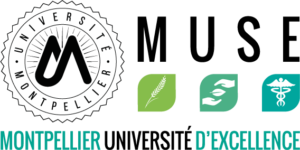Rechercher
Accueil > Production scientifique
Composites mous
(14) Production(s) de l'année 2025


|
A microscopic view of failure in multiple polymer networks  Auteur(s): Orr N., Cipelletti L.
Conference: Annual European Rheology Conference (Lyon, FR, 2025-04-14) |


|
Smart Copolymer Microgels with High Volume Phase Transition Temperatures: Composition, Swelling, and Morphology  Auteur(s): Gujare Aditi, Uredat Stefanie, Runge Jonas, Morgenstern Felix, Truzzolillo D., Hellweg Thomas, Oberdisse J.
(Article) Publié:
Langmuir, vol. 41 p.30442-30453 (2025)
Texte intégral en Openaccess : |


|
Rheology in Space - A review of past and present ESA experiments  Auteur(s): Martinelli Alessandro, Cristofolini Luigi, Orsi Davide, Ravera Francesca, Liggieri Libero, Salonen Anniina, Podgorski Thomas, Minetti Christophe, Sperl Matthias, Cipelletti L., Murdoch Naomi, Braibanti Marco, Vincent-Bonnieu Sébastien, Saint-Michel Brice (Document sans référence bibliographique) 2025-10-20 |


|
Where does the carbon go? A new carbon balance method to assess what happens to plastics under solar exposure  Auteur(s): Bertier Gustave, Martel Arnaud, George M., Fabre P., Boucher Fabien, Gérome Justine, Lagarde Fabienne (Article) Publié: Plos One, vol. 20 p.e0333021 (2025) |


|
Coupling of shear rheology and SAXS of rubber-carbon black nanocomposites 
Auteur(s): Shafqat Numera, Genix A.-C. (Article) Publié: Polymer, vol. 317 p.127927 (2025) |


|
Heterogeneous Decoration of Ionic Mesopores by Ionic and Poly(Ionic) Liquids  Auteur(s): Genix A.-C., Sharma Shilpa, Akkaya C., Alauzun Johan, Kohlbrecher Joachim, Bizien Thomas, Hesemann Peter, Oberdisse J. (Article) Publié: Acs Appl. Mater. Interfaces, vol. 17 p.47532-47542 (2025) |


|
Stress-hardening behaviour of biofilm streamers  Auteur(s): Savorana Giovanni, Redaelli Tommaso, Truzzolillo D., Cipelletti L., Secchi Eleonora (Article) Publié: Nature Communications, vol. 16 p.9497 (2025) |










 ,
, 
